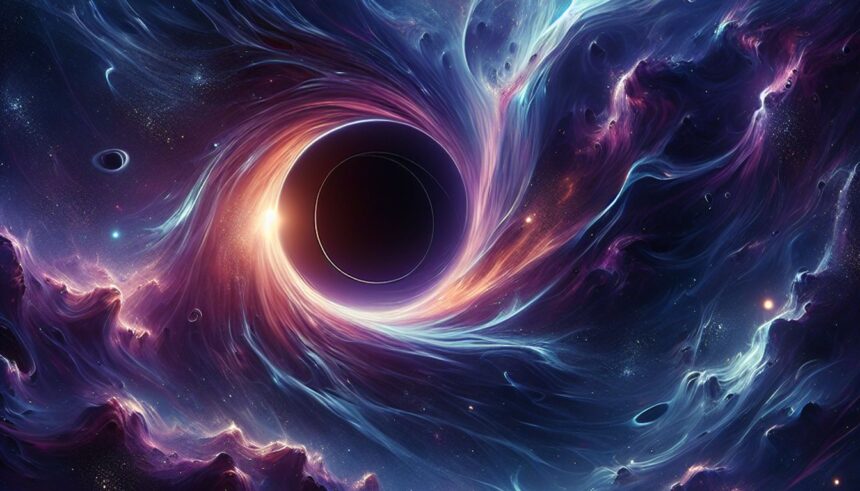Dark energy remains one of the most compelling subjects in modern astronomy, presenting a profound mystery that challenges our understanding of the universe. This invisible force, which makes up about 68% of the universe, is not only accelerating the expansion of the cosmos but is also intrinsically linked to the enigmatic nature of black holes.
Exploring the Connection Between Black Holes and Dark Energy
Black holes, regions in space where gravitational pull is so strong that nothing, not even light, can escape from them, are thought to be key to unlocking the mysteries of dark energy. Recent scientific research suggests that the mechanisms by which black holes manipulate space and time could provide insights into the properties and behavior of dark energy.
The Role of Cosmology in Understanding Dark Energy
Cosmology, the study of the origin and development of the universe, relies heavily on the data provided by observations of black holes and other astronomical phenomena to piece together the puzzle of dark energy. By analyzing how galaxies are moving away from each other faster than previously thought, cosmologists are revising the models of the universe to account for this dark component.
Technological Advancements in Dark Energy Research
Scientific advancements have led to the development of instruments such as the Dark Energy Spectroscopic Instrument (DESI) and the Dark Energy Camera Legacy Survey (DECaLS), which are crucial in observing cosmic phenomena associated with dark energy. These tools help astronomers study the distribution and speed at which cosmic structures are moving, shedding light on the influence of dark energy in the universe.
Theoretical Models and Simulation in Dark Energy Research
To complement observational data, theoretical physicists employ complex simulations to visualize and predict the behavior of dark energy. These models are essential for interpreting the effects observed by telescopes and for testing hypotheses about the nature of dark energy and its interaction with black holes.
Challenges and Controversies Surrounding Dark Energy Research
Despite significant progress, dark energy research is fraught with challenges. The mysterious nature of dark energy and its interplay with observable matter, like black holes, raises questions that push the boundaries of current scientific methodologies and instruments.
Future Perspectives in Dark Energy Exploration
Looking ahead, the continued exploration of dark energy and black holes holds the potential to not only alter our understanding of the cosmos but to also impact the fundamental laws of physics. With upcoming missions and experiments, researchers are optimistic about solving these space mysteries.
In conclusion, the quest to understand dark energy through the lens of black holes and cosmology not only enriches our knowledge of the universe but also challenges our very conception of reality. As research progresses, we can anticipate breakthroughs that will further unravel the intricate tapestry of the cosmos, offering new insights and potentially revolutionary theories.







